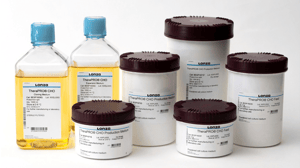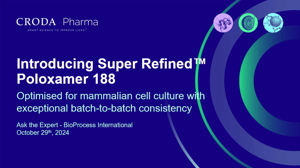REGENXBIO could receive up to $80 million after the US FDA approved Novartis/AveXis’ gene therapy Zolgensma (onasemnogene abeparvovec), which uses the firm’s NAV Technology Platform.
Last week, the US Food and Drug Administration (FDA) approved Zolgensma, a single-dose gene therapy developed by Novartis acquisition AveXis, for the treatment of children less than two years of age with spinal muscular atrophy (SMA).
The approval triggered a $3.5 million (€3.1 million) milestone payment to Maryland-based biotech REGENXBIO. Zolgensma is based on REGENXBIO’s NAV adeno-associated virus 9 (AAV9) vector, which AveXis licensed in 2014.

Image: iStock/DaLiu
The firm has so far received $190 million from AveXis through upfront and milestone payments, and REGENXBIO will be entitled to an additional $80 million once sales of the gene therapy reach $1 billion. (At a wholesale acquisition cost of $2.125 million, this represents 471 patients).
NAV technology
Kenneth Mills, CEO of REGENXBIO, described the approval as “a major milestone for NAV Technology.”
The technology, created and validated by REGENXBIO’s founders and collaborators at the University of Pennsylvania, consists of over 100 adeno-associated viral (AAV) vectors, which deliver engineered genes to cells. As well as being used in REGENXBIO’s own pipeline, the firm has partnered with over 20 others and claims there are 13 products in the clinic based on the NAV platform.
“Zolgensma is the first of many NAV Technology gene therapy product candidates in our research and clinical development pipeline with the potential to treat a large range of genetic and chronic diseases,” said Mills.
“We are excited to see our NAV Technology Platform validated as an FDA-approved therapy and are proud to be a contributor to this significant milestone as we are working diligently to advance our proprietary product candidates in retinal, neurodegenerative and metabolic diseases.”
The Zolgensma news comes days after REGENXBIO announced plans to build a good manufacturing practice (GMP) plant to support production of its NAV Technology-based vectors at scales up to 2,000 liters.

schedl_b_and_w.jpg?width=100&auto=webp&quality=80&disable=upscale)


schedl_b_and_w.jpg?width=400&auto=webp&quality=80&disable=upscale)





